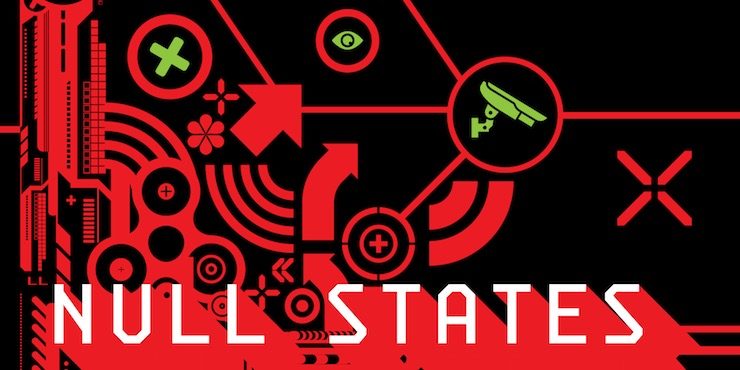When Infomocracy was accepted for publication, I decided I would donate a percentage of my earnings from the book to a non-profit working in an area related to the book’s themes. This was partly because I feel so lucky/privileged/blessed to be able to earn money doing something I love (especially since I already have another career I’m pretty happy with as well). The other reason was because I wanted to ground the fictional, futurist world of the book with the real present of its readers. My hope is that knowing a percentage of each purchase goes to support work in a specific area will help readers connect to the issues in the book, and see their relevance—and the potential for changing the status quo—in the world around them.
The Accountability Lab was the perfect fit for Infomocracy, reflecting the novel’s concerns with governance and transparency through their innovative work with young people around the world. I’m proud to have been able to support their programs—like Accountability Incubators and Integrity Idol, and if you’ve bought a copy of Infomocracy I hope you are too.
The sequel to Infomocracy, Null States, continues many of the same themes, but it focuses on areas on the edges and outside of the future world system. The null states of the title are those remaining nation-states that don’t participate in micro-democracy or share their data with Information; for the characters in the book they are largely blank, unreadable entities. In addition, much of the novel takes place in areas that are not technically null states, but are still for one reason or another almost invisible to the eye of Information, whether by choice or because of political and logistic realities they have no control over.
For this book I wanted to contribute to an organization working with the people on the margins of our global system. For that reason I’ll be donating a part of my earnings from Null States to the Institute on Statelessness and Inclusion, which works through research, education, advocacy, and partnerships to promote the human rights of stateless people and reduce statelessness across the globe.
People can become stateless—be denied a nationality—in several different ways. It mainly happens through discriminations, when a government refuses to recognize the rights of a certain group within its borders, or when a country has gender discriminatory laws about passing on nationality to children. It can also happen through state succession—when one state becomes two or more (as with the dissolution of the Soviet Union and Yugoslavia and the creation of South Sudan). Sometimes, statelessness happens through forced migration, but the majority of stateless people have never left their own country.
Stateless people are excluded from many global and national processes we take for granted, and are thereby denied the rights those processes afford. They may not be able to travel legally, they can be denied the protection owed to them by their governments, they may not be able to access finance, housing, or work opportunities. When people are denied a nationality, they are in many ways made invisible: not counted in census and other studies, slipping through the cracks of many (though not all) aid programs. Like the null states and other low-data areas I write about in the book, they become hard to see, and therefore hard to engage with, assist, diagnose, count. No one really knows how many stateless people there are in the world today, although the estimates put it on the order of 15 million. Making the individuals invisible also makes the impacts of statelessness invisible. Without citizenship, people can be denied their rights to, for example, education, health care, participation in government. If you’re interested in learning more about statelessness and what’s being done to reduce and eventually eliminate it, explore the ISI’s web page and sign up for their monthly bulletin.
An important theme of the whole Centenal Cycle is that states and their governments are constructs that we have created, and can change. Ideas of what government means, as well as the concrete details of how governments function, have changed dramatically over the past few centuries; we can, if we choose, change them again. Approaches to identity and self-definition, the relationship of the individual to the state, have similarly evolved, and we can work towards different kinds of interactions in the future. A corollary to this is that statelessness—the problem of people excluded from this arbitrary, human-made system—is also something we’ve created, and something that we can solve.
 Malka Older is a writer, humanitarian worker, and Ph.D. candidate at the Centre de Sociologie des Organisations studying governance and disasters. Named Senior Fellow for Technology and Risk at the Carnegie Council for Ethics in International Affairs for 2015, she has more than eight years of experience in humanitarian aid and development, and has responded to complex emergencies and natural disasters in Uganda, Darfur, Indonesia, Japan, and Mali. Null States, the sequel to Infomocracy, is available September 19th from Tor.com Publishing.
Malka Older is a writer, humanitarian worker, and Ph.D. candidate at the Centre de Sociologie des Organisations studying governance and disasters. Named Senior Fellow for Technology and Risk at the Carnegie Council for Ethics in International Affairs for 2015, she has more than eight years of experience in humanitarian aid and development, and has responded to complex emergencies and natural disasters in Uganda, Darfur, Indonesia, Japan, and Mali. Null States, the sequel to Infomocracy, is available September 19th from Tor.com Publishing.










